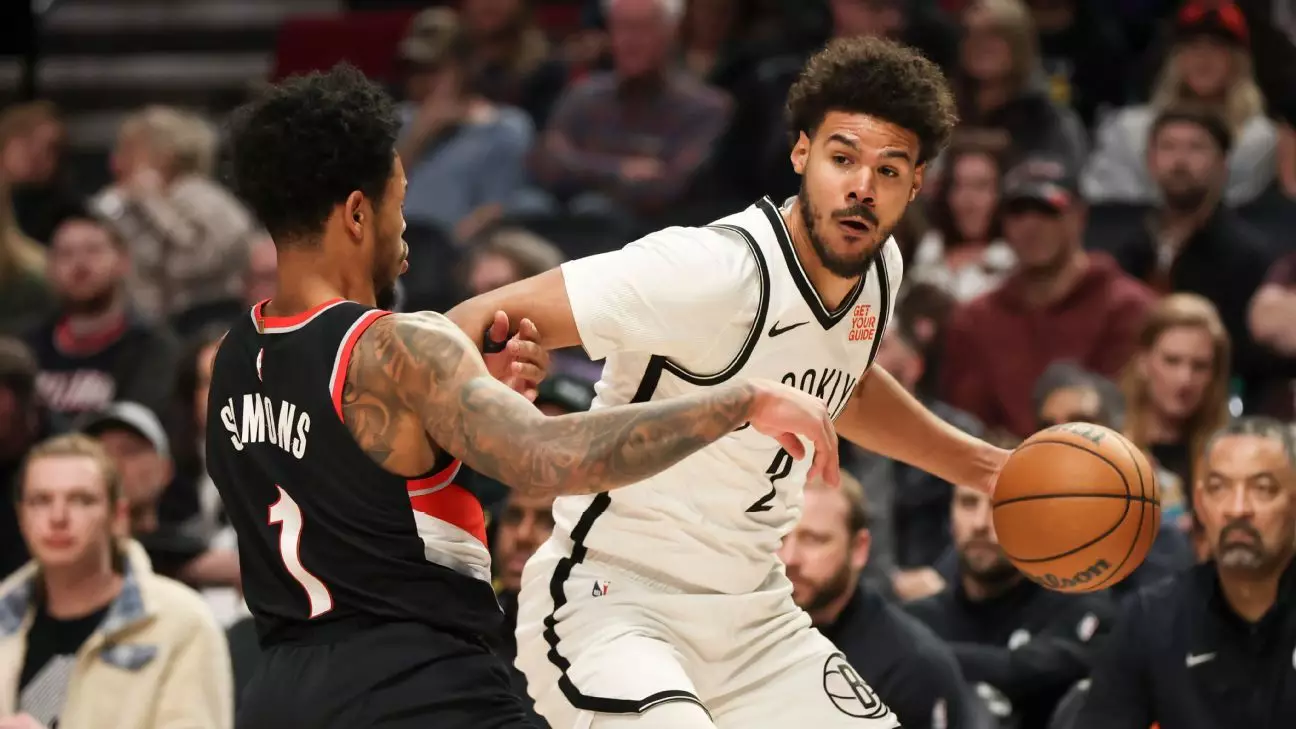The Denver Nuggets have taken a decisive step to reimagine their roster and future prospects by trading Michael Porter Jr. along with an unprotected 2032 first-round pick to the Brooklyn Nets for the agile forward Cameron Johnson. This move isn’t just a simple swap of players; it represents a deeper, more strategic recalibration under Denver’s recently restructured front office leadership. With Ben Tenzer and Jon Wallace now at the helm of basketball operations and player personnel, respectively, this trade is the first major signal that the Nuggets are willing to pivot aggressively—even after recently winning a championship.
The willingness to move Porter, a player who has been integral to Denver’s offense and championship run, underscores a readiness to challenge the status quo. Financially, the trade is complex: Porter’s hefty $79.1 million contract across two seasons contrasts sharply with Johnson’s more team-friendly salary of $44 million over two years. This financial recalibration offers Denver cap flexibility which could prove crucial for extending their championship window with Nikola Jokic and Jamal Murray.
Evaluating the New Pieces: Cameron Johnson and Bruce Brown
Cameron Johnson’s breakout season last year made him an attractive asset for any contending team. Standing at 6-foot-8, Johnson’s versatility and sharpshooting—shooting nearly 39% from three-point range—fit well into Denver’s spacing and playing style. Unlike Porter, who has had issues with health and consistency, Johnson’s trajectory shows a player hitting his prime. This could be exactly the kind of reliable, efficient contributor Denver needs to bolster their lineup around Jokic.
Denver also swiftly reacquired Bruce Brown, a veteran known for his locker room presence and defensive tenacity. Brown’s one-year minimum contract is a savvy move; he embodies the culture and grit that helped Denver secure the 2023 title. Statistically, Brown contributed solid all-around numbers last season (11.5 points, 4.1 rebounds, 3.4 assists), reinforcing his role as a complementary piece rather than a focal star. His return signals that Denver values continuity and chemistry alongside their strategic roster shake-up.
The Underlying Message from Denver’s Front Office
This trade and re-signing speak volumes about the Nuggets’ evolving philosophy. The firing of head coach Michael Malone and general manager Calvin Booth late in the previous season shocked many but now appears a catalyst for transformation rather than mere upheaval. Promoting David Adelman as head coach further indicates a desire for fresh tactical approaches, potentially more adaptable or innovative around Jokic’s unique skill set.
Rather than sticking with familiar formulas, Denver is embracing change—a bold act for a reigning champion in a league where continuity is often prized. By prioritizing financial flexibility, floor spacing, and cultural fit, the new leadership is crafting a composite team architecture focused on sustainability as much as peak performance. While Porter’s departure may sting emotionally given his role in past successes, this new vision could extend Denver’s status as title contenders in a more balanced and versatile way.
Denver’s moves exemplify a front office willing to weigh long-term upside over short-term comfort, a necessary mindset in the evolving NBA. This season will be a proving ground for Tenzer and Wallace’s strategies as they seek to equal or surpass the highs achieved under their predecessors. It’s a gamble filled with promise—and perhaps the fresh impetus the Nuggets need to remain at the pinnacle of professional basketball.

